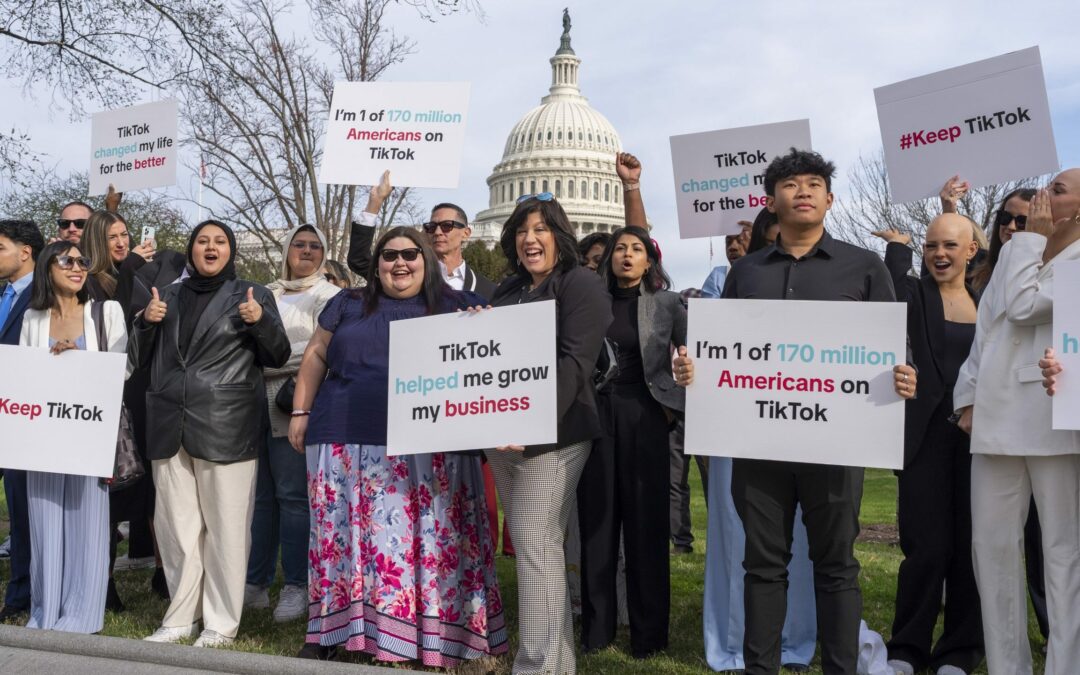An proposal to force TikTok’s Chinese owner, ByteDance, to sell the social media app or risk a ban in the United States gained traction in Congress on Thursday, with the House of Representatives scheduling a vote for Saturday and a senior Senate Democrat backing the measure.
The provision was included in a massive $95 billion legislative package that would offer aid to allies including Ukraine and Israel, marking a significant step forward in Washington after months of effort.
The revised plan, which would give ByteDance a year to sell the short-video app, has received the support of U.S. Senate Commerce Committee chair Maria Cantwell, whose vote significantly enhances the measure’s prospects of becoming law.

The previous plan, passed by the House last month with overwhelming bipartisan support, would have given ByteDance only six months to sell.
Many politicians and President Joe Biden’s administration believe TikTok poses a national security concern because China may compel the firm to divulge the data of its 170 million US users, despite TikTok’s insistence that it has never given US data and never will.
READ MORE: Mike Pence Launches $2 Million Ad Campaign To Push TikTok Ban Through The Senate
Cantwell had been hesitant to endorse the original plan, but he now fully supports the version proposed as part of a package negotiated by House Speaker Mike Johnson.

“I’m very happy that Speaker Johnson and House leaders incorporated my recommendation to extend the Byte Dance divestment period from six months to a year,” Cantwell stated in an e-mail. “Extending the divestment period ensures that a new buyer has adequate time to complete a transaction. “I support the updated legislation.”
READ MORE: Sony Awarded More Than $800,000 For TikTok Copyright Infringement
In a statement, a TikTok representative said it was “unfortunate that the House of Representatives is using the cover of important foreign and humanitarian assistance” to push through the law.

The company claimed that limiting the app would violate users’ free expression rights, which are protected by the First Amendment of the United States Constitution, and would damage 7 million American businesses that utilize the app.
In a March interview with Reuters, Cantwell stated that she wants legislation to address broad concerns about foreign apps that will stand up in court, adding that she wanted “the strongest possible tool, and we want it to be the most robust tool we can get.”
Radiant TV, offering to elevate your entertainment game! Movies, TV series, exclusive interviews, music, and more—download now on various devices, including iPhones, Androids, smart TVs, Apple TV, Fire Stick, and more.


